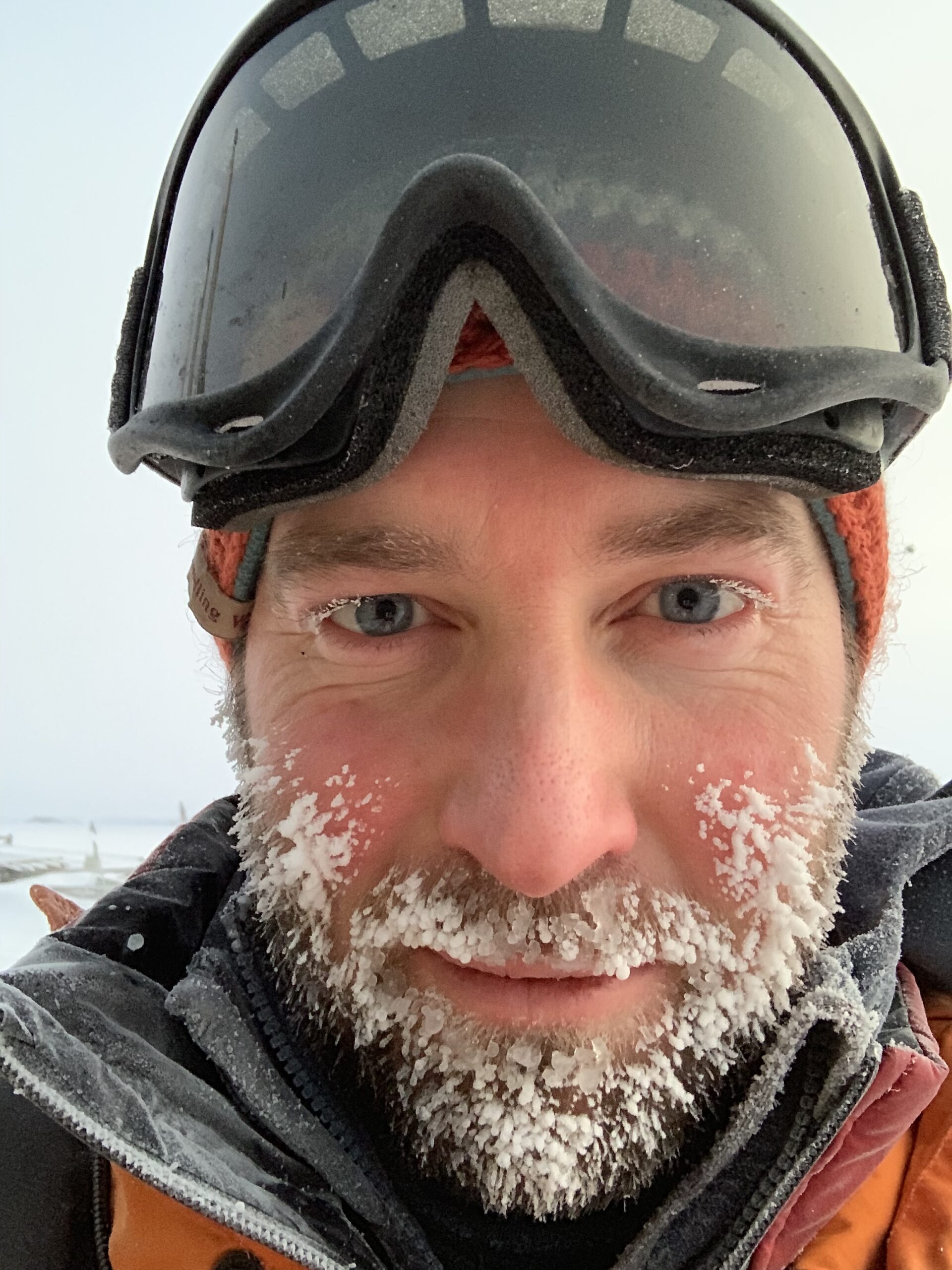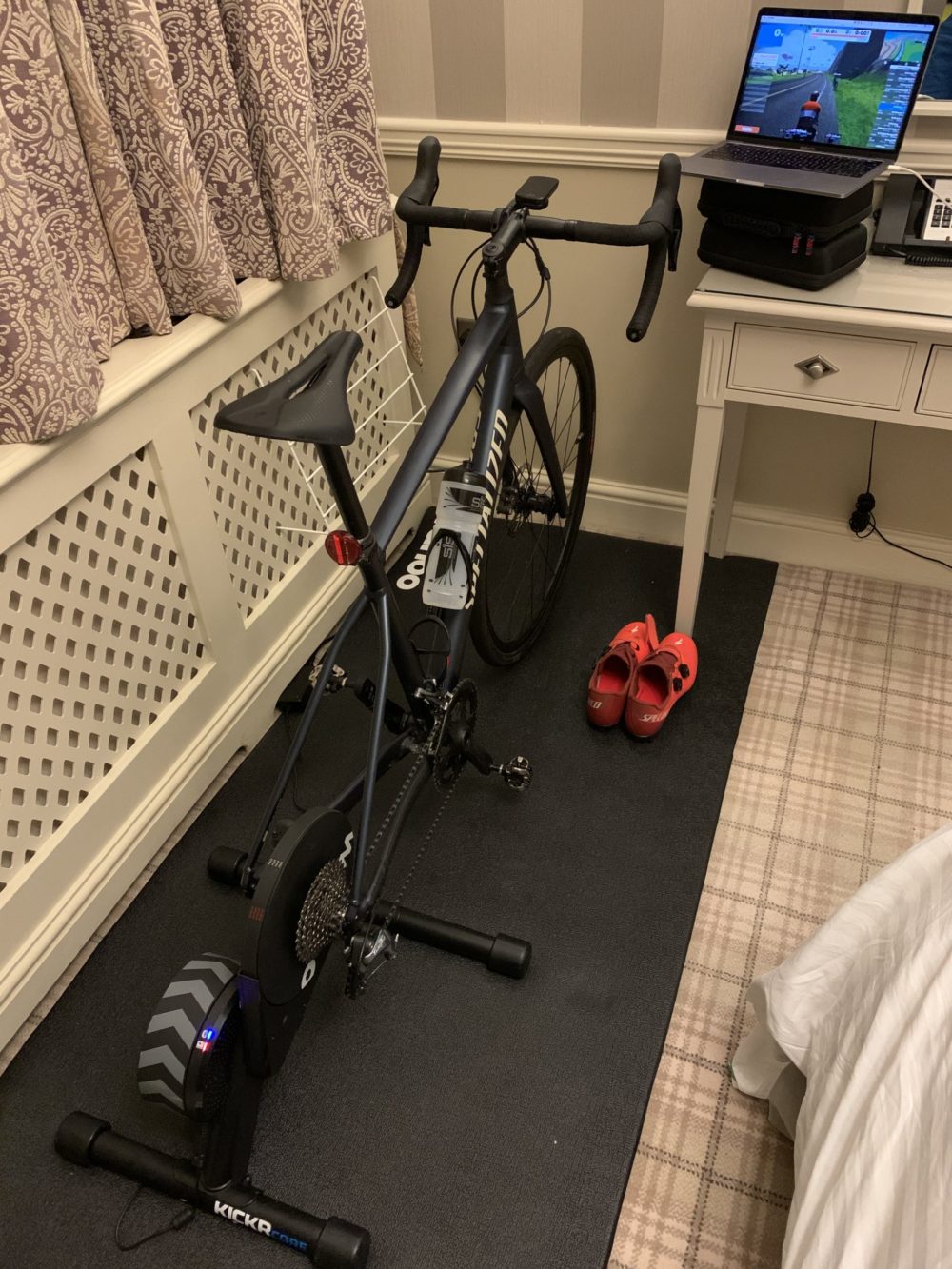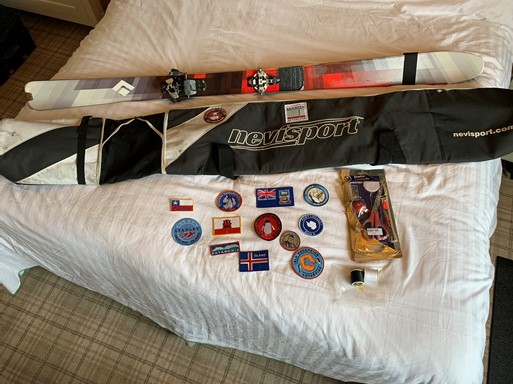Reflections on Isolation
3 November, 2020 Rothera, RRS James Clark Ross
Matthew Phillips reflects on his three periods of quarantine this year in preparation for working in Antarctica as Rothera Winter Station Leader. All staff deployed to Antarctica this season will quarantine to keep everyone safe and the continent free of the Covid-19 virus.
Tucked away in a hotel somewhere between Cambridge and Harwich, I’m one of 40 support staff for British Antarctic Survey quarantining for 14 days, ahead of joining the RRS James Clark Ross for a seven week journey to Antarctica. I’ll be working at their main Antarctic station at Rothera.
I’m no stranger to quarantining. Earlier in March this year BAS put a halt on people traveling to Antarctica due to the risk of Covid-19 reaching any of the research stations (Antarctica is still the only Covid-free continent). I was hoping to make it to Rothera at the end of March, ahead of being the 2020 Winter Station Leader. I received a phone call from BAS operations while I was on a ski holiday to say they wanted to try to get me down and how early could I be travel. There was a flight to the Falkland Islands three days after my holiday ended and from there I could fly on our Dash-7 aircraft down to Antarctica.
Quarantine #1
After I started the journey things were changing fast in the UK and lockdown was only a week or two away. I arrived at RAF Brize Norton, after an eight hour drive from my home in Scotland and was told the flight was delayed by 24hrs.
Little did I know the reason for this wasn’t a technical issue with the plane or crew sickness, but Cape Verde (where the flight stops to refuel) had closed its borders. That wasn’t my immediate concern though as things had started to close down in the UK so finding a hotel with rooms was my first obstacle. I managed to find somewhere on the outskirts of Oxford and the hotel said they would usually have upwards of 120 people staying at that time of year, I was one of nine people that night. I reported to Brize Norton the next evening and was promptly told that the flight had been cancelled.

I retuned to the hotel, somewhat with tale between my legs and checked back in for an unknown amount of time. I didn’t know it then but this was the start of quarantine #1! I knew the potential fall-out of Covid getting to Antarctica and BAS were doing everything to keep me isolated. As the days passed, the odds of me getting to Rothera increased. After nine days the flight was back on and would refuel in Senegal now.
Quarantine #2
The Falklands had a couple of suspected cases when I arrived and by this point the UK had been in lockdown for three days. The Falkland Islands Government had all new arrivals quarantine for 14 days, and so started quarantine #2. I really felt the weight of responsibility not to take Covid to Antarctica at this point.
It’s been said that after over-wintering in Antarctica: “it’s important to remember that you are not a real Antarctic hero. However, there is nothing wrong with letting people believe”. If I took Covid to Antarctica I would be remembered for all the wrong reasons. In the end it was decided that the risk was too great, something I agreed with despite my personal disappointment of not getting down for another winter. The world had changed monumentally in the 26 days since I’d left home.
Quarantine #3
Anyway, back to the present day and I’d actually been looking forward to quarantine #3. The final weeks before you travel to Antarctica always tend to be manic. Juggling training courses, packing up your life and trying to see friends and family is tricky enough in a normal year. So the idea of being in a hotel room for 14 days was quite welcome.
I’ve always considered myself quite an organised individual and so quarantine is a perfect opportunity to do all those jobs you put to one side, for one reason or another. Organising your digital photo library, emailing or messaging old friends or reading that book you’ve always wanted to.
In a normal year there is a week or so of pre-deployment training to be done in Cambridge, a month of so before you go south. This was heavily curtailed this year, so we have various zoom sessions each day, to cover these various elements that didn’t have to be done in person. That takes up most afternoons and we have an allotted time each day to get out and stretch our legs in the hotel grounds.
This quarantine I thought I would try to sew the various patches I’ve accumulated over the years to my ski bag. The other new lockdown activity is cycling. I was one of those people who bought a bike during lockdown. I use to do a lot of mountain biking in my early twenties, so by the time I got back on the new bike, I had been out the saddle for about 15 years (giving my age way there). I’d forgotten how much I’d enjoyed it, even if I can hear my younger-self giving me some stick for buying a road bike.
Ahead of this quarantine, I bought a ‘smart trainer’ so I could cycle in my hotel room. Through the wonders of technology I can cycle virtually through a dedicated app. It’s all very clever, it increases the resistance as you hit a virtual hill and reduces it as you go down the other side, whatever next?

I love a challenge and through an app you can progressively climb Mount Everest (8,848m) by completing various sessions; sign me up! I’ve done 2,987m or 33% so far and I’m on day seven of quarantine, so I’m going to attempt to do 1,700m of elevation today to catch-up and get to 50% of the way up!
Travelling to Antarctica for Season 2020/21
Hopefully we will join the British Antarctic Survey’s polar vessel, the RRS James Clark Ross later this week. From there we’ll have a seven week journey to Antarctica through the tropics and via three other BAS research stations (King Edward Point, Bird Island and Signy). We’ll be delivering the new winter teams and resupplying the stations before arriving at Rothera sometime between Christmas and New Year. Before my Station Leader days, I was a Boating Officer at King Edward Point, so I’m hoping my sea legs haven’t diminished too much! Sailing all the way from the UK will only add to the adventure.

At the moment I don’t feel like I’m at the beginning of a year long deployment to the Antarctic, I suspect that will change as we set sail. The journey has always started by flying out of the UK, so this is quite different. When I’m ‘South’ (or in Antarctica) I often daydream about what will be different in the ‘real world’ when I return. For example, when I returned in 2015 having spent 21 months in South Georgia selfie-sticks were a new thing. Given how the world has changed due to Covid over the last eight months, it’s almost scary to think how much things might change over the next year or so.
The latest information on our Antarctic Operations can be found in our news section.